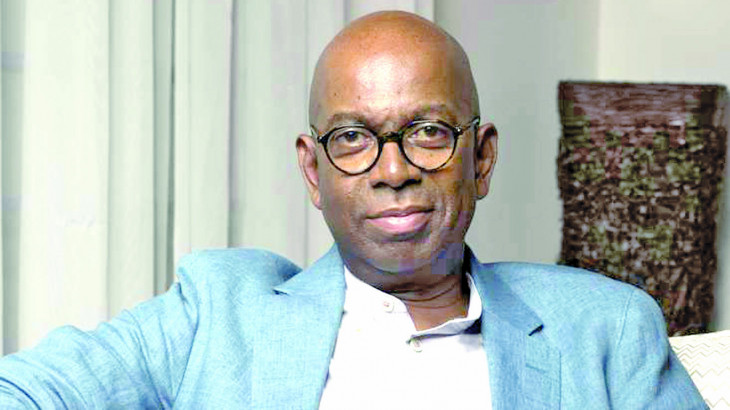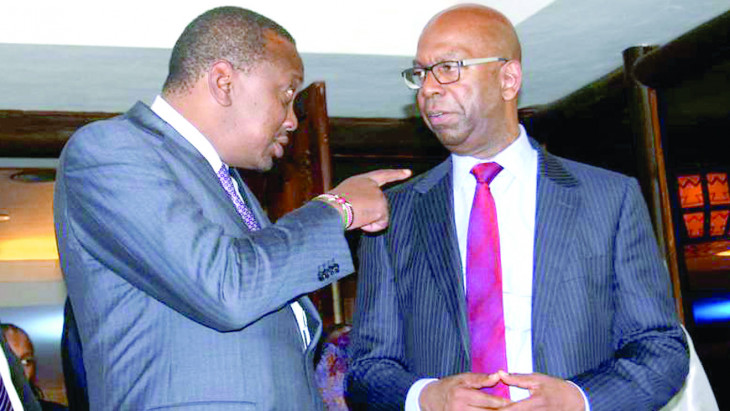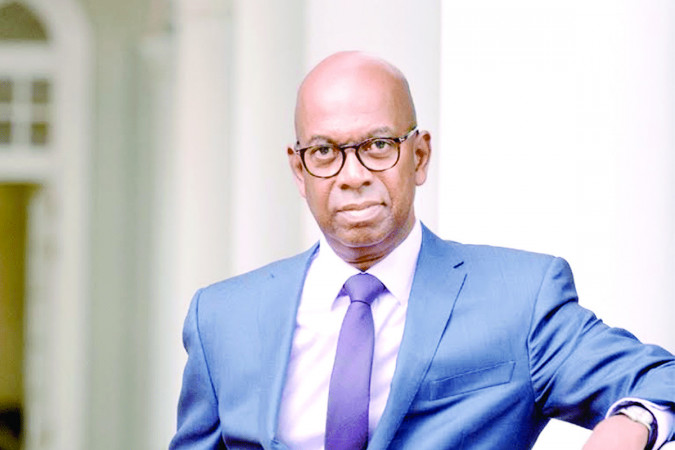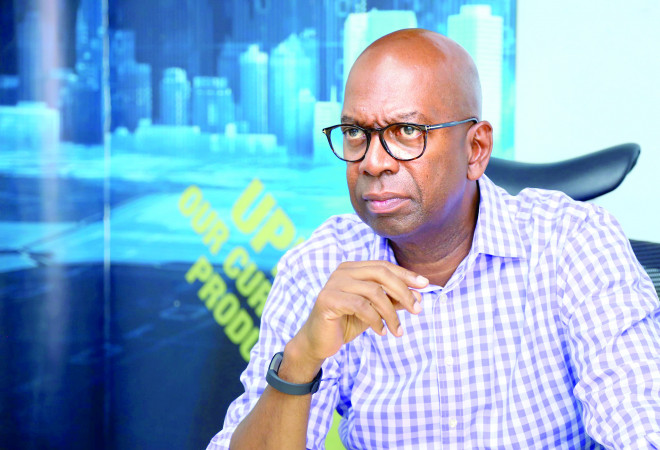Conspiracy behind Bob Collymore’s succession
By Nganga, July 8, 2022“I am not going in August, that is unless I die of course.” These are the words Bob Collymore spoke when he met this reporter for an interview on May 3, 2019.
He was reacting to an article published earlier that week by Reuters, which had indicated that Safaricom and the government were locked in a battle over whether or not to pick a Kenyan to succeed him at Safaricom as Chief Executive Officer.
Bob Collymore was probably angry at the particular reference to the month, more than the fact that he would be leaving the company, which prior to the interview, the understanding that it was a matter of when not if.
He was also concerned about how his succession would be handled, and for him, this was of utmost importance. Probably, he intended to ultimately hold the hand that would hold the pen that would write the story of his succession.
Stage for Bob’s exit
The first sign that Bob Collymore was setting the stage for his exit, and was seeking to control the narrative around it, came in an interview that he gave the Africa Report(www.theafricareport.com) in March 2019, in which he obliquely indicated that indeed, he would be retiring from Safaricom.
“His own tenure – which comes to an end in August 2019 – has been about consolidation…” the website wrote in the article shared among local editors soon after its publication.
The point of discussion then was not so much that Bob would be leaving the telco as that he was spending more time playing his saxophone, which he had bought during his period of recuperation in London.
However, he was clear even then that the company needed a successor with a different set of skills from his own. He acknowledged that he was not very good with mergers and acquisitions but understood that Safaricom needed “someone who can spot a deal and grab it.”
He described his ideal successor as “someone who understands the financial sector a lot more” and someone “who is not going to be scared of going into other markets.”
He would set a tentative tone of this a few months later when he and Equity CEO James Mwangi signed a wide-ranging agreement through which, for instance, Equity could take the MPesa platform to other African countries like Rwanda, the Democratic Republic of Congo and Zambia, where it was rapidly growing its presence through acquisitions.

Dilemma of nationality
So clearly, by the time Safaricom was announcing its full-year results in March 2019, the stage had been set and Bob Collymore was already preparing the market for his exit as well as for a smooth transition.
The only problem appeared to be that the honchos at Vodafone could not agree with State House, Nairobi, on the nationality of the man who would take over the reins. When he had been unveiled in 2009 as the man who would take over from Michael Joseph, Safaricom’s founding CEO in 2010, there had been murmurs about his ability and suitability to step into his predecessor’s big shoes.
The question on the lips of those who were watching Safaricom at the time was whether Bob Collymore would live up to the billing.
However, he went out of his way to assure the market that he would be building on the pace that Michael Joseph had already started but he added: “I have a bigger role to add value to shareholders… We shall continue to invest and roll out more innovations that add value”.
Indeed for him, it was a point of pride that by the time he was getting ready to hand over the corner office at Safaricom House, the question of just how much the company’s stock was worth was no longer on the table.
It gave him immense satisfaction just knowing that he had delivered the value he had promised shareholders who, over the years, had recovered the equivalent of their initial investment from dividend earnings alone, not to mention an appreciation of the stock from Sh5.50 during the Initial Public Offering in 2008, to Sh28 at the time of his demise.
As part of the briefing prior to our meeting, those close to him had indicated that he would be leaving the company — only not in August.

Bob Collymore’s final bow
In a sense, both they and Bob were right in more ways than one, although, despite my asking, they did not lay all their cards on the table, only promising to draw each when the time was ripe.
On the morning of July 1, 2019, Kenya and the corporate world woke to the news that Bob was no more yet only a few weeks earlier, Safaricom had given him a one-year extension that would have seen him serve until 2020 to make up for the period he had taken medical leave in 2017.
It was an overcast Monday morning. The sun had not come out as was its routine over the Nairobi skyline. The swirling clouds were reluctant to open up, only content to cast a pall over the city that Bob Collymore had called home for close to ten years. But at around 10 am, the sky cleared.
The sun came out, tentatively at first, before revealing its glory as the day wore on. And those who read significance in the elements could not miss the signs. One chapter had closed. Another was opening.
Later in the day, his friend, TV journalist Jeff Koinange revealed that doctors had actually told Bob Collymore that he was unlikely to live beyond July. Of course, Bob had this information even on the day he announced the Safaricom results – his last – that May.
It is very possible that in Bob’s last weeks at Safaricom, he was miffed because Reuters had reported there was a tug-of-war over his succession. That, clearly, was not how he had envisaged it. The facts – and corporate realpolitik – were getting in the way of his success story.
Word on the wire at the time was that a Greek citizen, Haris Broumidis, was tipped to take over from Bob. However, State House, Nairobi, as opposed to the appointment of a foreigner, the third in a row, to head Kenya’s biggest and most profitable company.
There was also reference to a pact which had given the Kenya government, itself a shareholder through the National Treasury, a free hand to choose Bob’s successor.
The government was keen on that person being a Kenyan. That meant Broumidis, then CEO of Vodafone Greece was not guaranteed the job despite backing by Vodacom.
Bring back Michael Joseph
Incidentally, Vodacom bosses had been scheduled to fly to Nairobi on a Thursday, two days after Bob died, ostensibly for talks at State House over who was to take over the leadership of the company.
News of the meeting was yet to reach the public domain and the President himself was out of the country that week, though he was expected to be back in time to host the talks.
Then the unexpected happened. When news of Bob’s demise became public, Nicholas Nganga, the board chairman, sent out a press statement saying that the board was aware of the need to put a succession plan in place.
“We shall be giving the way forward within the next 24 hours,” Nganga said. For a company the size of Safaricom, talking about “the need for a succession plan” could only mean one thing; there was a tussle over who should take over.
Basically, the board was buying time in the hope that both State House and Vodacom would agree on either a substantive or interim measure to ensure continuity in the C-Suite.
However, this had to be done in such a way that it would not signal that the person picked to hold brief in the interim was a front-runner or a candidate waiting to be confirmed at the end of his or her acting period.
Within the week, the Safaricom board met and settled on bringing back Michael Joseph as interim CEO, arguing that this would give the company time to find a substantive office holder. Of course, as expected, this did not go down well with some in the business community, especially those who believed that Michael had done his time and would be a continuation of the old rather than an injection of the new.
Eleven days after Bob’s demise, Philip Kisia, who once served as chairman of the Nairobi Central Business District Association (NCBDA), a corporate lobby group that engaged the then-City Council to create a conducive environment for big businesses before the advent of devolution, sent a protest note to the Business Daily, in which he warned that it would not go down well for Safaricom to pick a non-Kenyan for CEO.
“Foreign companies go through a great deal of trouble to poach highly-skilled and visionary executives to run their companies,” he said in the note.
“As such, it would be naturally logical to employ a Kenyan to guide and align the company along Kenyan core values and principles. Furthermore, and interestingly, Michael (Joseph) mentions that the board of directors had already initiated a search nearly 18 months earlier for the late Bob Collymore’s replacement.”

“Boys Club”
It is possible that this search had yielded a foreigner. It is also possible that Bob Collymore had endorsed the board’s candidate. And it is highly possible that this had caused friction between the senior executives, board and top shareholders on the one hand, and the Kenyan government on the other, to the point where government honchos had stopped answering Bob’s phone calls.
He had no way of saying a formal and final goodbye even when he felt that his hour was drawing nigh. In the end, that message had to be delivered to his “Boys’ Club”, who were invited for the last of their weekly Tuesday meetings – and their last shared bottle of whiskey – on June 25, 2019, six days before Bob died.
According to politician and businessman Peter Kenneth, who was one of the five “boys” invited for the sombre private ceremony, even those who eschewed whiskey were that evening requested to take a tot to mark the solemnity of the occasion.
President Uhuru Kenyatta would later remark, during Bob’s funeral service, that the drink had in fact been reserved for him and it was only fair that “the boys” ensure the wrong was righted.
Indeed it was righted a week to the first anniversary of Bob’s death.
